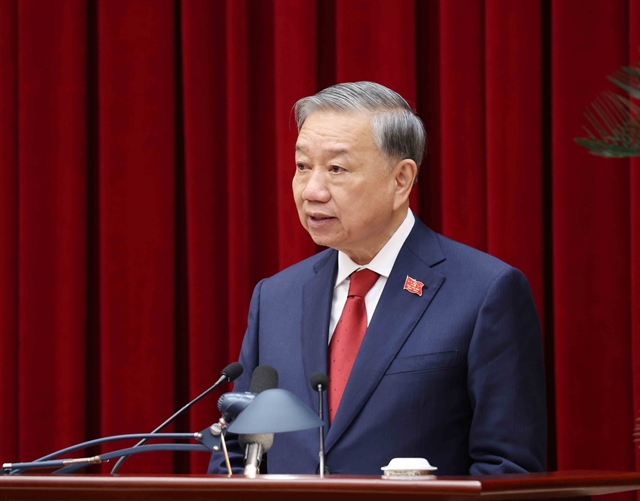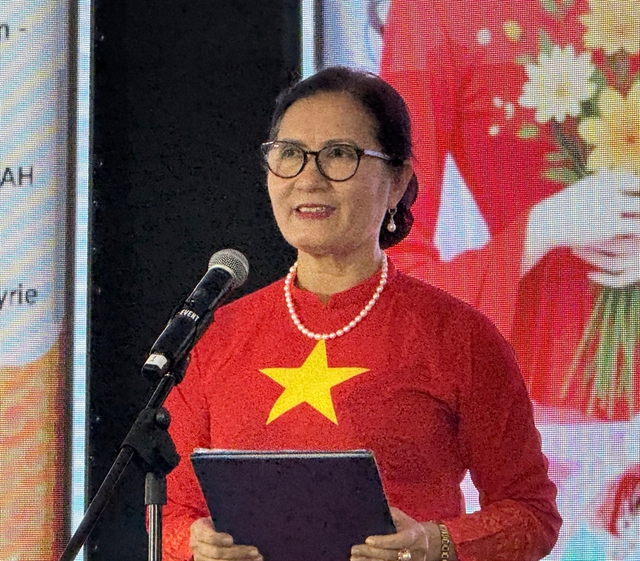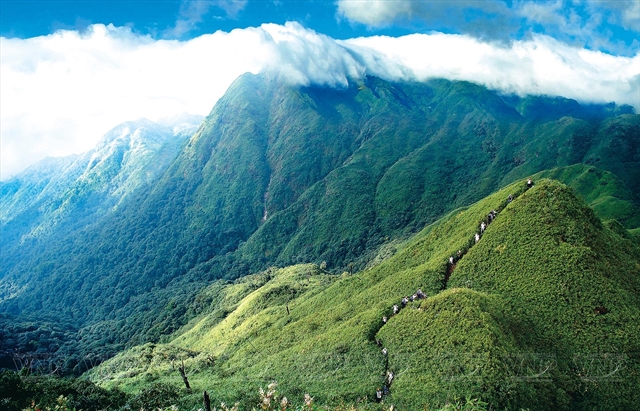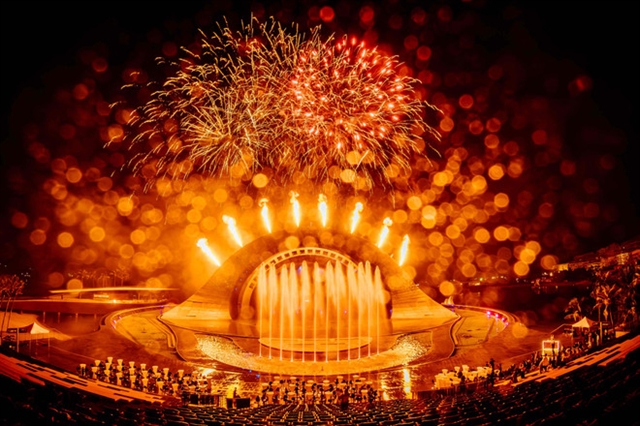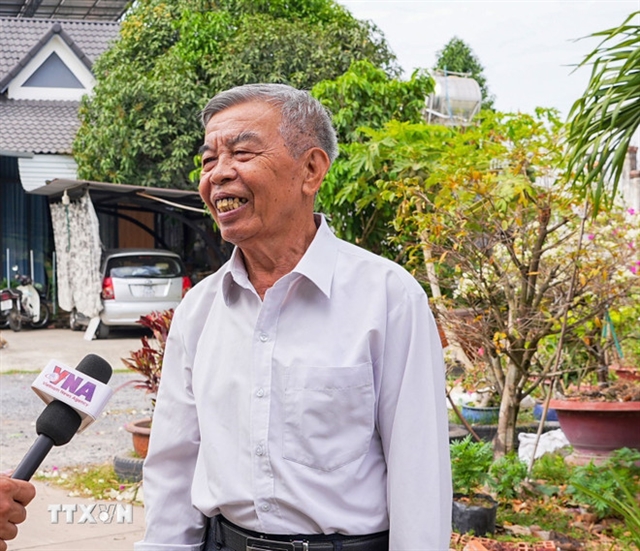 Society
Society
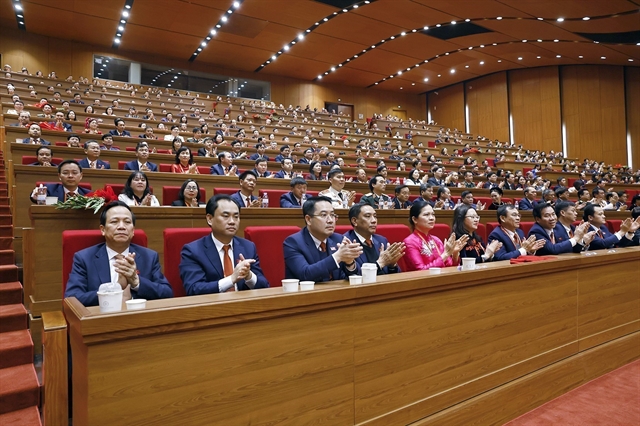
“We are now entering the Knowledge Revolution 5.0 era,” Chang Dae-whan, Founder of World Knowledge Forum, has said, highlighting the significance of knowledge in decision-making amidst rapid changes of the human life.
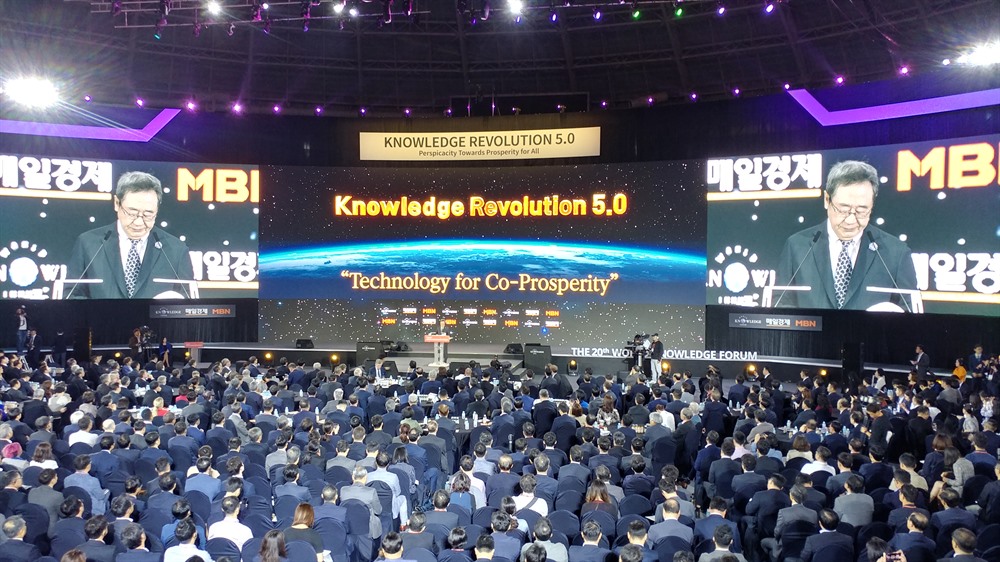
|
Chang Dae-whan, Founder of World Knowledge Forum and Chairman of the Maekyung Media Group, delivers an opening speech at the 20th World Knowledge Forum. — VNS Photo Ngọc Bích
SEOUL — “We are now entering the Knowledge Revolution 5.0 era,” Chang Dae-whan, founder of the World Knowledge Forum, said on Wednesday, highlighting the significance of knowledge in decision-making amidst rapid changes to human life.
In his opening speech at the 20th World Knowledge Forum on Wednesday, Chang, also the Chairman of South Korea media firm Maekyung Media Group, said humanity has experienced four explosive knowledge expansions.
The first knowledge revolution started when the humans evolved into homo sapiens, a period when they first began to recognise and imagine, differentiating them from animals by thinking.
The second stage manifested itself as the First Agricultural Revolution. Humans who relied on hunting and gathering began to settle and use various techniques to farm.
The third was the Scientific Revolution. With the emergence of modern science, major countries entered the overseas market more freely.
The fourth expansion was known as the Industrial Revolution, which featured the development of steam engines, expanding productivity rapidly.
Finally, Knowledge Revolution 5.0 features the technologies of the Fourth Industrial Revolution, such as artificial intelligence, 5G and smart sensing, which is poised to dramatically change human life.
Chang stressed many challenges lie ahead as the world is witnessing a trade war between the US and China, political crises such as Brexit and the Hong Kong protests, as well as the adverse impacts of climate change.
He said that it’s time for countries to act toward globalisation goals and reconciliation of free trade and innovation.
“We cannot succeed alone,” Chang stressed.
He called for an increase in knowledge-sharing as knowledge is a decisive factor in information-based decision making.
Esko Aho, former Prime Minister of Finland and co-chair of the event, said since the 2000s, the challenges have increased, not decreased. Major technological invention and innovation drive economic and social developments but there are more technological interruptions without fundamental changes in economic, political and social policies as well.
Therefore, social and economic models should be revised to get full benefit of technological advances, Aho said.
Wang Jia Rui, vice chairman of the Chinese People′s Political Consultative Conference and Chairman of China Soong Ching Ling Foundation, said the world is going through a transformation unseen in a century.
The most striking feature of the changes is uncertainty, he said, adding that governments seem unable to catch up with changes caused by new technological evolution and industrial revolution.
To cope with the changes, countries need to understand the laws of history, identify the general trend of the world and share knowledge, he said.
He emphasised that countries need to focus on long-term goals by working together in an open and inclusive manner, finding common factors and common interest of each other in order to build mutual trust and co-exist.
The World Knowledge Forum, one of Asia’s largest annual business forums, takes place from yesterday to Friday with the participation of 250 leaders from political, economic, business and technology sectors and 3,500 attendees. — VNS

